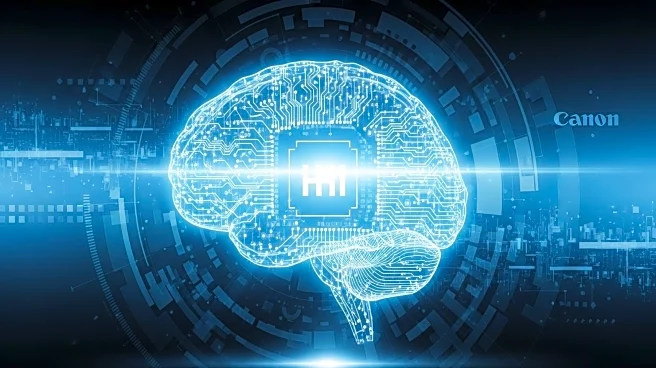What's Happening?
Zendesk has announced a suite of AI-driven products designed to significantly reduce the reliance on human technicians in customer support. Central to this initiative is an autonomous support agent capable of resolving 80% of support issues without human intervention. This system is complemented by a co-pilot agent to assist with the remaining 20% of issues, along with an admin-layer agent, a voice-based agent, and an analytics agent. Shashi Upadhyay, Zendesk's President of Product, Engineering and AI, highlighted the shift towards AI handling most of the work traditionally done by humans. The new system has been previewed with existing customers, showing promising results in consumer satisfaction. This development follows a series of AI acquisitions by Zendesk, including Hyperarc, Klaus, and Ultimate, which have laid the groundwork for this transformation.
Why It's Important?
The introduction of AI agents by Zendesk marks a significant shift in the customer support industry, potentially reducing the need for human customer service representatives. With Zendesk's Resolution Platform already supporting nearly 20,000 customers and resolving 4.6 billion tickets annually, the impact of AI-driven support could be substantial. This move could lead to increased efficiency and cost savings for businesses, while also raising questions about the future of employment for the 2.4 million customer service representatives in the U.S. alone. The success of this AI initiative could set a precedent for other companies to follow, further integrating AI into customer service operations.
What's Next?
As Zendesk rolls out its AI-driven support system, the company will likely monitor its effectiveness and customer satisfaction closely. The broader industry may observe Zendesk's implementation as a case study for AI integration in customer service. Potential reactions from stakeholders, including businesses and labor groups, could influence the pace and scale of AI adoption in the sector. Additionally, Zendesk's competitors may respond by developing or enhancing their own AI solutions to maintain competitiveness.
Beyond the Headlines
The deployment of AI in customer support raises ethical and cultural considerations, particularly regarding job displacement and the quality of human interaction in service roles. As AI systems become more prevalent, companies may need to address concerns about data privacy and the transparency of AI decision-making processes. Long-term, this shift could influence societal perceptions of AI and its role in everyday business operations.











